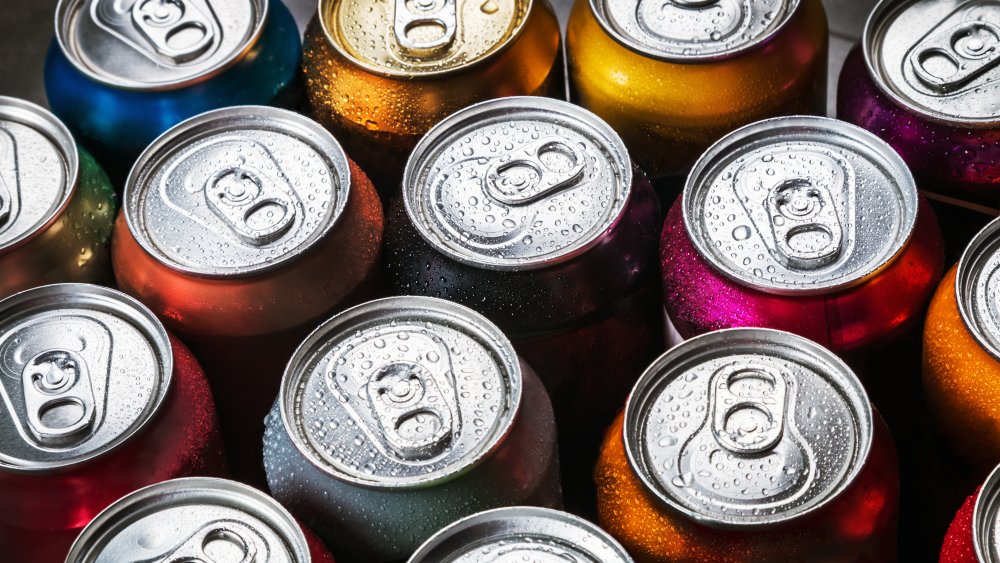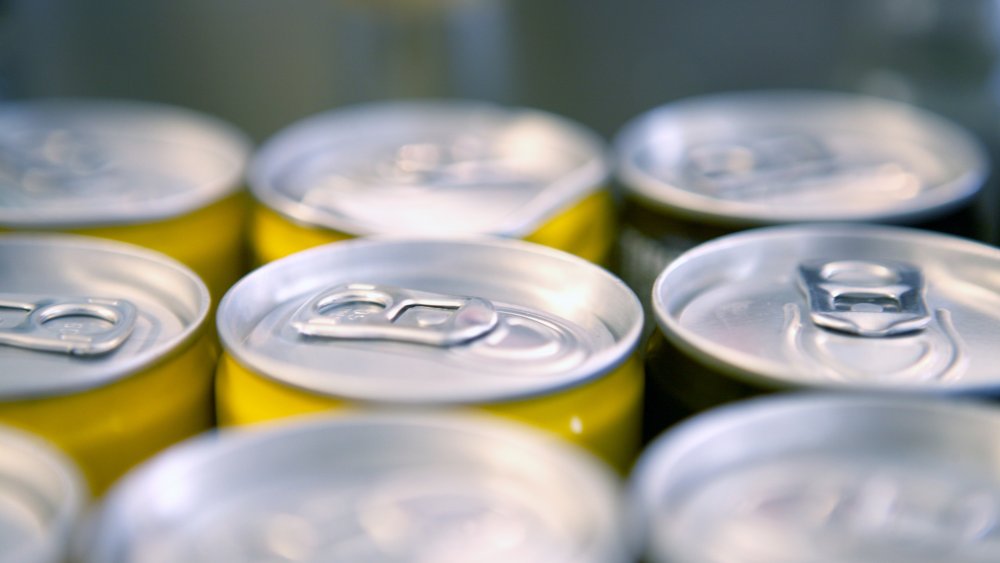Read This And You'll Never Drink Soda The Same Way Again
How many times have you reached into a refrigerator case or cooler to grab a cold soda can, pop that open, and drink it? If you say, "Too many times to count," you wouldn't be alone. But what if we told you that drinking straight out of a soda can presents health risks? Would that be enough to make you change your mind?
Let's face it. We don't really know where our soda cans have been; nor do we know what's come in contact with them. What we do know is that back in 2013, a CBS team asked a microbiologist to run tests on soda cans found at grocery stores, gas stations, restaurants, universities, and vending machines across North Texas. They discovered different types of bacteria in jaw-dropping quantities. One can yielded mold, another can produced yeast, while tests show a third can that had a side of staphylococcus delivered with it. The dust off the top of a fourth can from a gas station yielded coliform — a bacteria that lives in the large intestines of humans and animals.
While you might argue that the tests date back to way back when, similar experiments conducted by The Doctors in 2018 on soda cans taken from a vending machine, a grocery store, and gas station yielded germy results too. While the cans from the gas station and vending machine came back with common bacteria, the grocery store samples tested positive for E. coli.
The inside of a soda can
We shouldn't just be bothered about the potential germ party that goes on outside a soda can, though we should be looking at what's inside the can, too. While most food can manufacturers have done away with BPA (bisphenol A), which used to be found in plastic bottles, Packaging Digest admits BPA can still be found in about 10 percent of food-related packaging. In fact, Eat This, Not That! says the compound is still present in the plastic linings inside some aluminum cans. BPA has been linked to heart disease, reproductive problems including low sperm count, prostate cancer, and fetal development issues, as well as certain types of cancer (via Nature).
It's impossible to do away with soda cans, because — let's face it — they're convenient and considered a sustainable resource because they are fully recyclable (and you can use them around pools and boats, unlike glass containers). But you may want to consider rinsing the tops of your cans with water before drinking out of them as a way to banish at least some of the germs that have staked out the real estate on top of your soda can.

